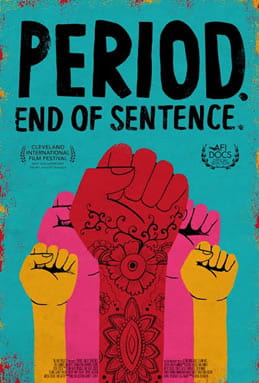** The mental health relationship between public health and human rights is often misunderstood. Humanity can begin to see the underlying and overarching interconnections among poverty, its relation to lack of health insurance and untreated mental health issues, and individual and public safety. This blog seeks to provide insight and resources that help bridge the gap and offer solutions that remove stigma and shame. – AR
by Marie Miguel

It’s difficult to ask for help when you’re suffering from the symptoms of mental illness, whether that be depression, PTSD, Schizophrenia, Bipolar Disorder, or Anxiety. Sometimes, mental illness can leave you feeling hopeless and at the mercy of your symptoms. Some people have a great ability to see outside of their symptoms and ask their support system for help, but there are challenges when getting help for mental illness. We will explore what it takes to acknowledge that you have an issue and get the help that you need in this article.
Acknowledging that you need help
It’s difficult to admit that you need help when you have a mental illness. Here’s an example of where someone with mental illness Let’s say that you’re living with Bipolar Disorder, and you’re in an episode of mania. You’re spending lots of money, engaging in risky behavior, and you find that your life is out of control. Your friends are put off by your excessive spending habits and your wild behavior that’s out of control. You know that you have a problem and you don’t know how to ask for the help that you need because you’re in the midst of a manic episode. What do you do? Well, you reach out to a loved one first, and say: “I need help.” they might not know how to help you, but at least you’re admitting that there is a problem, and trying to get the help that you need starts with talking about the issue. They might not have a solution, but it’s time to admit that there’s something that you have to address. Next, maybe you and your loved one go to your doctor and discuss the issues. That’s assuming that you have health; this is all the optimal scenario. Then, your doctor refers you to a psychiatrist, who can treat your symptoms, and you find a therapist that works together with your psychiatrist. So, this is an ideal scenario in which you have insurance, you have a support system, and you find the mental health providers that you need. Not everybody is so lucky, and we need to see how those who don’t have access to good healthcare fare in our system.
When you don’t have resources
Let’s examine the same scenario when you don’t have appropriate resources. So, let’s say that you have Bipolar disorder, you’re going through a manic episode, and you’ve alienated your friends and family. There’s nobody to reach out to for help, and you don’t have insurance. How might you feel? Isolated. You don’t know what to do or who to turn to for help. These are the things that we have to think about in terms of getting people with mental illness help because sometimes, the symptoms of mental illness are destructive and you end up alienating those who can help you. So if you notice that a friend or family member is doing something self-destructive, it’s one thing to be angry with them and another thing to have compassion. If you can, even if they’re acting in a way that’s not kind, try to get them the help that they need because, in a way, the person may be crying out for it even if they’re cruel in the process. Now, don’t put yourself at risk or in harm’s way – there are times to draw boundaries with people if somebody is acting in a that is unsafe and they intend to harm themselves or others. If somebody is suicidal, for example, it’s time to get them to a hospital because you won’t be able to provide them with the help that they need. Many times, it’s about finding the right resources. Some people don’t know where to find the right resources for their problems. The problem is that sometimes there aren’t enough resources available.
The resources need to be there
If you have insurance, use it. One of the things that we have to remember is that even if you have a mental illness, it doesn’t make you powerless. You can, if you have insurance, look for a provider to help you with your mental illness, whether that’s PTSD, Bipolar Disorder, Schizophrenia, or Anxiety. Find a psychiatrist who’s able to talk with you about your symptoms and get you help. So, that’s one thing that you can do, and speak with your psychiatrist and find a treatment plan that works for you. Have your psychiatrist and therapist work together and understand that a treatment plan takes time to develop. You’ll be able to figure out what your treatment plan is over time and get better.
Creating resources when there are none
There are instances where people cannot get help because there’s overcrowding in hospitals or they can’t find a provider that takes their insurance that doesn’t have a five-month-long waitlist. It can happen to people that have “good” insurance. So what do we need to do as a society to create more resources so that people can get the help that they need? Well, one thing is, we need to train more therapists. So, we need to understand that and value the jobs of mental health professionals. One resource we can use is online therapy. It is affordable, and it is accessible to many people. Some people don’t have the luxury of choosing from a plethora of therapists.
Online therapy
One alternative to traditional face-to-face therapy is online therapy. Online therapy is an excellent space for people that have a mental illness to get the support that they need affordably from the privacy of their own home. Companies like BetterHelp are an excellent place for people to find a therapist that they can talk to and feel comfortable sharing their problems with so that they can get better. Our world is changing, and technology can be used for good. Let’s try to make space for people who have a mental illness to get the support that they need. Everyone deserves access to quality healthcare, which includes their mental health.
Marie Miguel has been a writing and research expert for nearly a decade, covering a variety of health-related topics. Currently, she is contributing to the expansion and growth of a free online mental health resource with BetterHelp.com. With an interest and dedication to addressing stigmas associated with mental health, she continues to specifically target subjects related to anxiety and depression.




